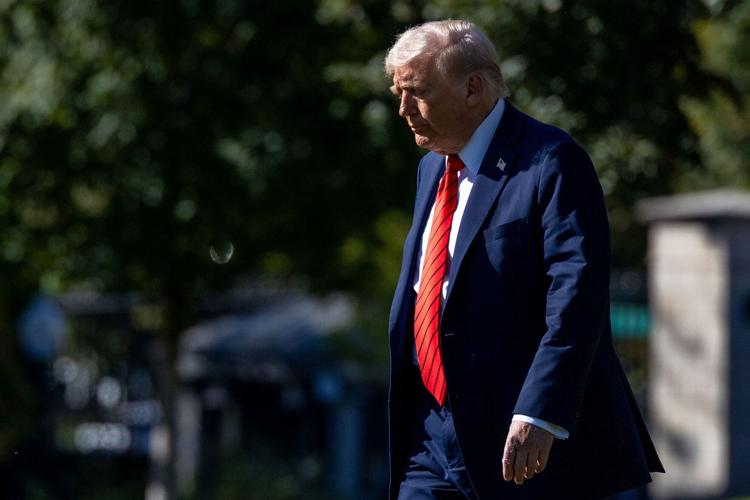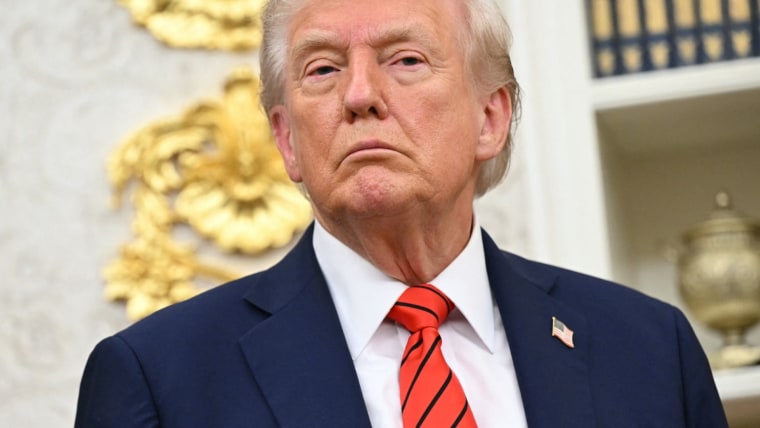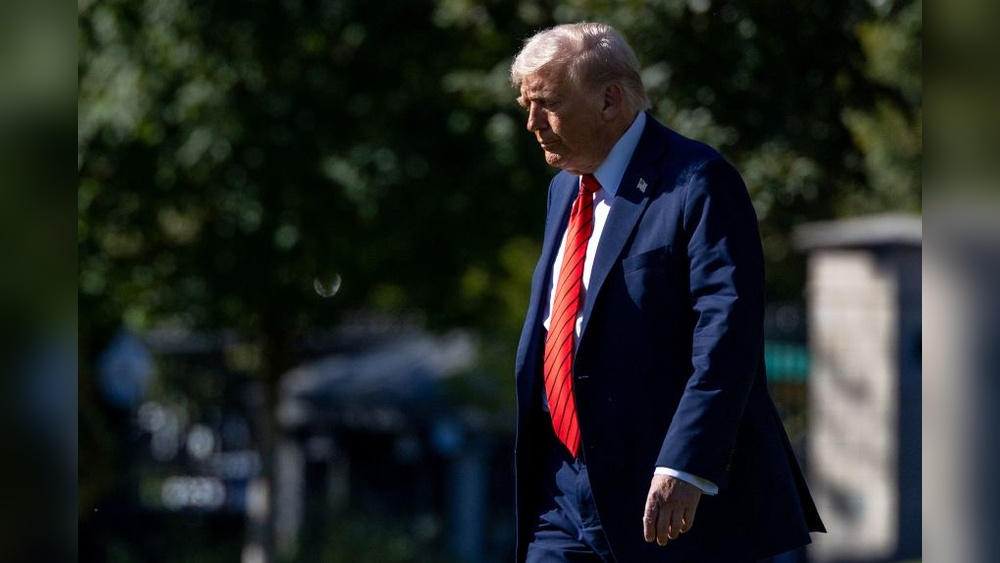Have you heard about the recent conversation that caught the world’s attention? Former President Donald Trump spoke directly with María Corina Machado, the Nobel Peace Prize winner from Venezuela.
This unexpected connection has sparked curiosity and debate everywhere. If you want to understand why this dialogue matters and what it could mean for international peace efforts, keep reading. This article will reveal the details of their exchange and why it’s grabbing headlines right now—don’t miss out on the story behind this powerful interaction.

Credit: www.crossroadstoday.com
Historic Call
The recent historic call between former President Donald Trump and Nobel Peace Prize winner María Corina Machado marks a significant moment in international dialogue. This unprecedented conversation brought together two influential figures committed to peace and democracy. Their discussion highlights a rare collaboration between political leadership and recognized peace advocacy.
Such a call echoes through global politics. It offers hope for cooperative solutions to pressing conflicts. The dialogue also opens doors to new approaches in diplomacy. Understanding the details and significance of this conversation helps us grasp its impact better.
Details Of The Conversation
Trump and Machado discussed key issues affecting Latin America. They focused on democracy, human rights, and peaceful conflict resolution. Machado shared her recent efforts supporting Venezuelan democracy. Trump expressed support for these initiatives and emphasized the need for unity. Both agreed on the importance of international cooperation to promote peace. Their exchange was respectful and forward-looking, aiming to inspire action.
Significance Of The Dialogue
This call is significant for several reasons. It highlights the influence of peace prize winners in global affairs. It also shows Trump’s interest in engaging with peace advocates beyond party lines. The dialogue may influence future diplomatic strategies in Latin America. It sends a message that peace requires dialogue and collaboration. This historic call could inspire more leaders to seek common ground.
Maria Corina Machado
Maria Corina Machado is a prominent Venezuelan activist and politician. She gained international recognition for her dedication to human rights and democracy. Machado’s strong voice against oppression has made her a key figure in Latin America.
Her influence extends beyond Venezuela, inspiring many across the world. Recently, she received the Nobel Peace Prize for her courageous efforts. This honor highlights her impact on global peace and justice.
Background And Achievements
Maria Corina Machado was born in Caracas, Venezuela. She studied engineering but quickly moved into politics. Machado became known for fighting corruption and promoting freedom. She helped organize peaceful protests and campaigns for democracy.
Her work often put her at risk. Despite threats, she continued to speak out. Machado also served as a member of the Venezuelan National Assembly. Her leadership in civil society earned her respect worldwide.
Path To Nobel Peace Prize
Machado’s path to the Nobel Peace Prize began with her activism. She stood firmly against dictatorship and human rights abuses in Venezuela. Her calls for free elections and justice gained global attention.
The Nobel Committee praised her bravery and commitment. They recognized her efforts to bring peace through dialogue and nonviolence. Machado’s award highlights the power of peaceful resistance.
Trump’s Nobel Peace Prize Journey
Donald Trump’s path toward the Nobel Peace Prize has been full of twists. His efforts to broker peace talks and diplomatic breakthroughs drew worldwide attention. Many watched closely as he aimed to join the ranks of laureates.
Despite public declarations and nominations, the prize remained elusive. His talks with Nobel winner María Corina Machado added new chapters to this story. The journey highlighted both hope and controversy.
Previous Nominations And Controversies
Trump received several nominations for the Nobel Peace Prize during his presidency. These mostly praised his role in Middle East peace agreements. Critics questioned the timing and the depth of these agreements.
Some argued the nominations were premature. Others pointed to ongoing conflicts as reasons for doubt. His peace efforts sparked debates about the true impact of his policies. The controversies kept the prize committee cautious.
Public Reactions To The Snub
The public response to Trump missing the Nobel Peace Prize was mixed. Supporters expressed disappointment and frustration. They viewed the snub as unfair or politically motivated.
Opponents felt the decision was justified. They cited unresolved conflicts and questioned his peace credentials. Media outlets worldwide covered the reactions with keen interest. The snub became a key topic in political discussions.

Credit: www.nbcnews.com
Impact On Venezuela
The recent conversation between Trump and Nobel Peace Prize winner María Corina Machado shines a light on Venezuela’s ongoing crisis. Their dialogue brings fresh attention to the country’s struggle for democracy and human rights. It also highlights the roles both figures play in shaping Venezuela’s future. Understanding this impact helps explain the political shifts in the region.
Machado’s Role In Venezuelan Politics
María Corina Machado is a key opposition leader in Venezuela. She fights against authoritarian rule and calls for democratic reforms. Her Nobel Prize recognizes her courage and efforts for peace. Machado’s voice inspires many Venezuelans who seek change. She works to unite opposition groups and promote free elections.
Trump’s Influence On Regional Democracy
Donald Trump’s support of Venezuela’s opposition affects regional politics. His administration took a firm stance against Maduro’s government. Trump promoted sanctions and diplomatic pressure to restore democracy. His influence encouraged allies in Latin America to back democratic efforts. This support adds weight to the opposition’s fight for freedom.
Nobel Peace Prize History
The Nobel Peace Prize has a rich and complex history. Established in 1895 by Alfred Nobel’s will, it honors those who work to promote peace worldwide. The prize is awarded annually by the Norwegian Nobel Committee. It aims to recognize efforts in diplomacy, disarmament, and conflict resolution.
Over the years, the prize has highlighted many courageous individuals and organizations. Some recipients have made lasting impacts on global peace. Others have sparked debate and controversy. This history reflects the challenges in defining and rewarding peace efforts.
Notable Recipients And Refusals
Many famous figures have received the Nobel Peace Prize. Martin Luther King Jr., Mother Teresa, and Malala Yousafzai are among them. Their work inspired millions and changed societies. Organizations like the International Committee of the Red Cross have also been honored.
Some winners refused to accept the prize. Le Duc Tho declined in 1973. He believed peace had not truly been achieved in Vietnam. Such refusals highlight the complex nature of peace and politics. They remind us that recognition can be as complicated as the conflicts themselves.
Controversial Awards And Debates
The Nobel Peace Prize has faced many controversies. Some awards came during ongoing conflicts, raising questions. Critics argue these choices were premature or politically motivated. For example, Henry Kissinger’s prize in 1973 sparked heated debate due to his role in the Vietnam War.
Debates continue on the prize’s criteria and selection process. Peace is hard to measure and often tied to politics. The prize reflects hopes for peace but also the limits of diplomacy. These controversies show the challenges in honoring peace achievements fairly.
Future Implications
The recent conversation between Trump and Nobel Peace Prize winner María Corina Machado carries significant weight. It may influence political landscapes and international relations. The discussion highlights shared interests and potential strategies for change.
This meeting could reshape alliances and alter diplomatic approaches. Both figures hold strong positions on key issues. Their cooperation might bring new momentum to ongoing conflicts and peace efforts.
Potential Political Outcomes
The dialogue may strengthen Trump’s political base by appealing to his supporters. It signals commitment to addressing complex issues with respected leaders. This alliance could lead to new policy proposals and electoral strategies.
Machado’s involvement may boost her influence on the global stage. It opens doors for collaboration with other political figures. The partnership might inspire similar dialogues between other leaders.
Effect On U.s.-venezuela Relations
The conversation may ease tensions between the United States and Venezuela. It suggests a willingness to engage in peaceful negotiations. This could pave the way for diplomatic solutions to long-standing conflicts.
Both sides may explore economic and humanitarian cooperation. Improved relations could benefit the Venezuelan people facing hardship. The discussion sets a precedent for future diplomatic efforts.

Credit: www.youtube.com
Frequently Asked Questions
Who Is The Only Person Who Refused To Accept The Nobel Peace Prize?
Le Duc Tho is the only person who refused the Nobel Peace Prize. He declined due to ongoing conflict in Vietnam.
Did Barack Obama Ever Win A Nobel Peace Prize?
Yes, Barack Obama won the Nobel Peace Prize in 2009 for promoting international diplomacy and cooperation.
Who Is María Corina Machado Nobel Prize?
María Corina Machado is a Venezuelan politician and activist. She has not won a Nobel Prize.
Has Any President Ever Won A Nobel Peace Prize?
Yes, several presidents have won the Nobel Peace Prize, including Barack Obama and Theodore Roosevelt.
Conclusion
The conversation between Trump and Nobel winner Machado highlights important global issues. Both leaders share hopes for peace and progress. Their dialogue may inspire future cooperation and understanding. Such talks remind us how communication shapes world events. Watching their next moves could reveal new paths forward.
This meeting marks a notable moment in recent political history.

